Egypt shark attacks: How rare is the deadly mauling off the busy tourist beach?
After a video of a shark attack in Egypt went viral Tara Cobham investigates recent incidents across the world

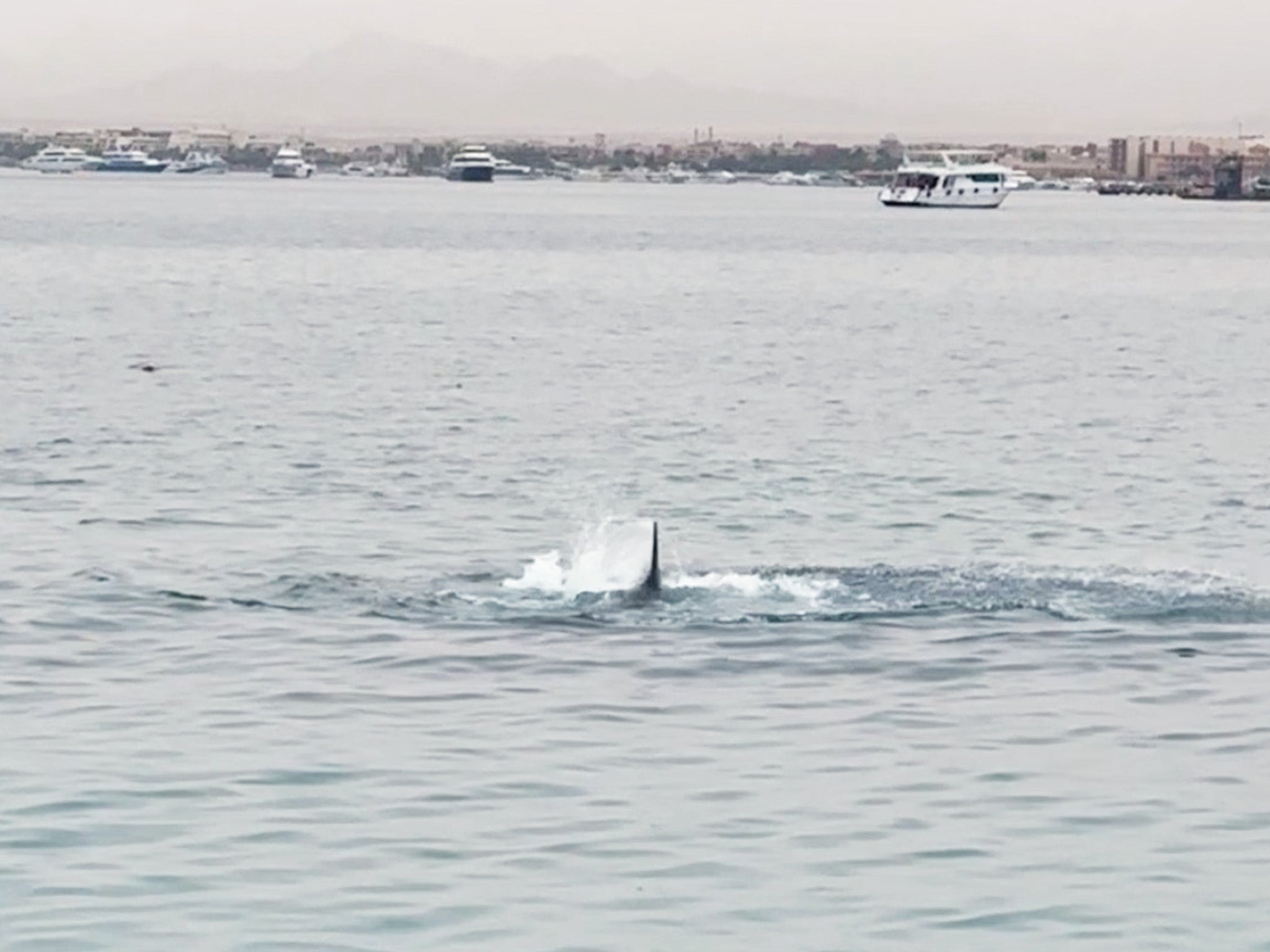
Your support helps us to tell the story
From reproductive rights to climate change to Big Tech, The Independent is on the ground when the story is developing. Whether it's investigating the financials of Elon Musk's pro-Trump PAC or producing our latest documentary, 'The A Word', which shines a light on the American women fighting for reproductive rights, we know how important it is to parse out the facts from the messaging.
At such a critical moment in US history, we need reporters on the ground. Your donation allows us to keep sending journalists to speak to both sides of the story.
The Independent is trusted by Americans across the entire political spectrum. And unlike many other quality news outlets, we choose not to lock Americans out of our reporting and analysis with paywalls. We believe quality journalism should be available to everyone, paid for by those who can afford it.
Your support makes all the difference.Some 40 kilometres of white sand lined with hotels stretches along Egypt’s Red Sea coast, making up the picturesque beach resort town of Hurghada, where tourists flock to dive in its sparkling blue sea.
But beachgoers relaxing in the sun were jolted out of their contented torpor by a bloodcurdling scream of “papa!” coming from someone swimming out in the water.
Horror descended on this peaceful scene as the blue waters of the Red Sea, just off ‘Dream Beach’, appeared to suddenly turn the colour of its name.
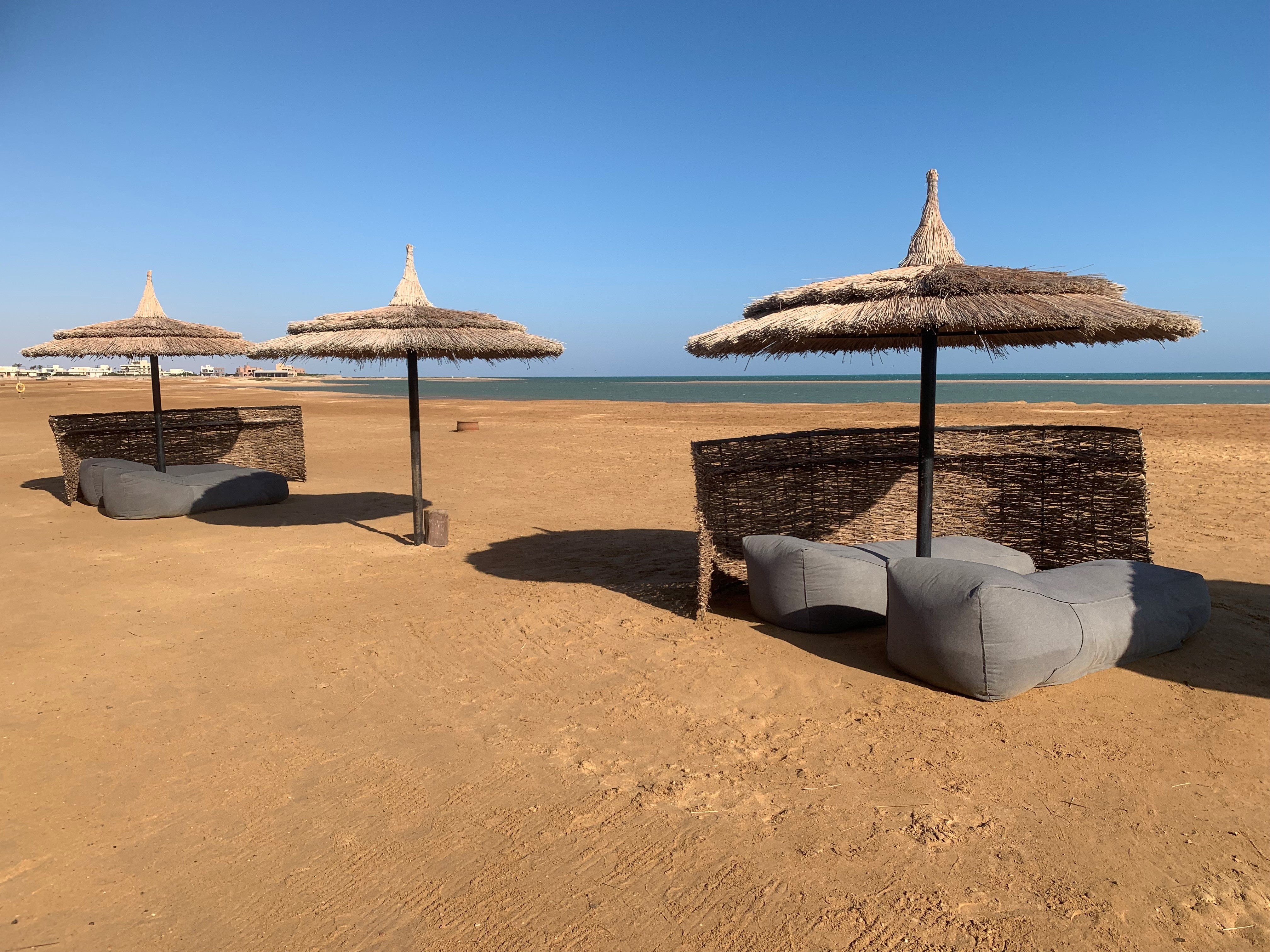
A man, latterly identified as a 23-year-old Russian national, seemed to be thrashing about as he was pulled down into the water and then resurfaced, desperately fighting off a tiger shark in a brutal attack.
In the disturbing nearly minute-long video taken from the beach, he also appears to scream out “papa” and cry out loudly as the shark repeatedly circles and comes back in to attack. Later in the footage, a witness is heard saying “it is eating his remains now” as a small ship sails in the distance.
Tiger sharks are large species that reside in tropical and temperate waters and are among sharks most cited by the Florida Museum of Natural History in its International Shark Attack File (ISAF) for unprovoked attacks on humans.
But shark attacks are generally rare overall, with confirmed unprovoked cases totalling 57 worldwide in 2022, according to the ISAF, which is lower than the most recent five-year (2017-21) average of 70 incidents annually.
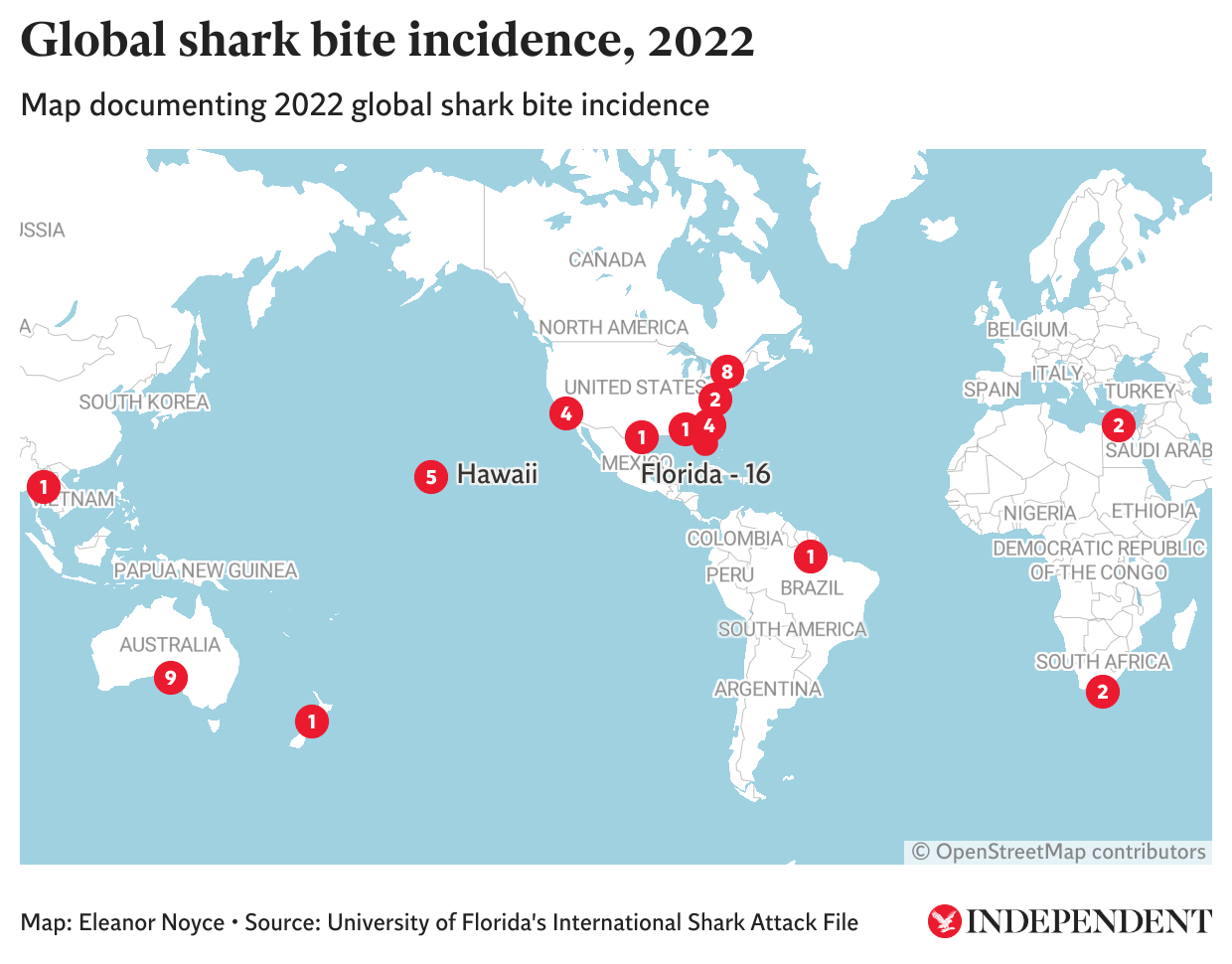
Meanwhile, the database suggests those that end in a fatality are even rarer, numbering just five of last year’s figure, which is roughly in line with the five-year global average of six unprovoked fatalities per year. It adds there were an additional four shark-related deaths in 2022 that were classed as provoked.
However, the ISAF notes two of those unprovoked killings happened in Egypt’s waters, making it the highest, joint with South Africa, for fatal cases last year. It states two was also the country’s total figure for unprovoked shark bites, which means all attacks there resulted in death. Although there were 41 unprovoked shark bites in the USA in 2022, the database shows only one resulted in death, while of the nine people who were bitten in Australia, all survived.
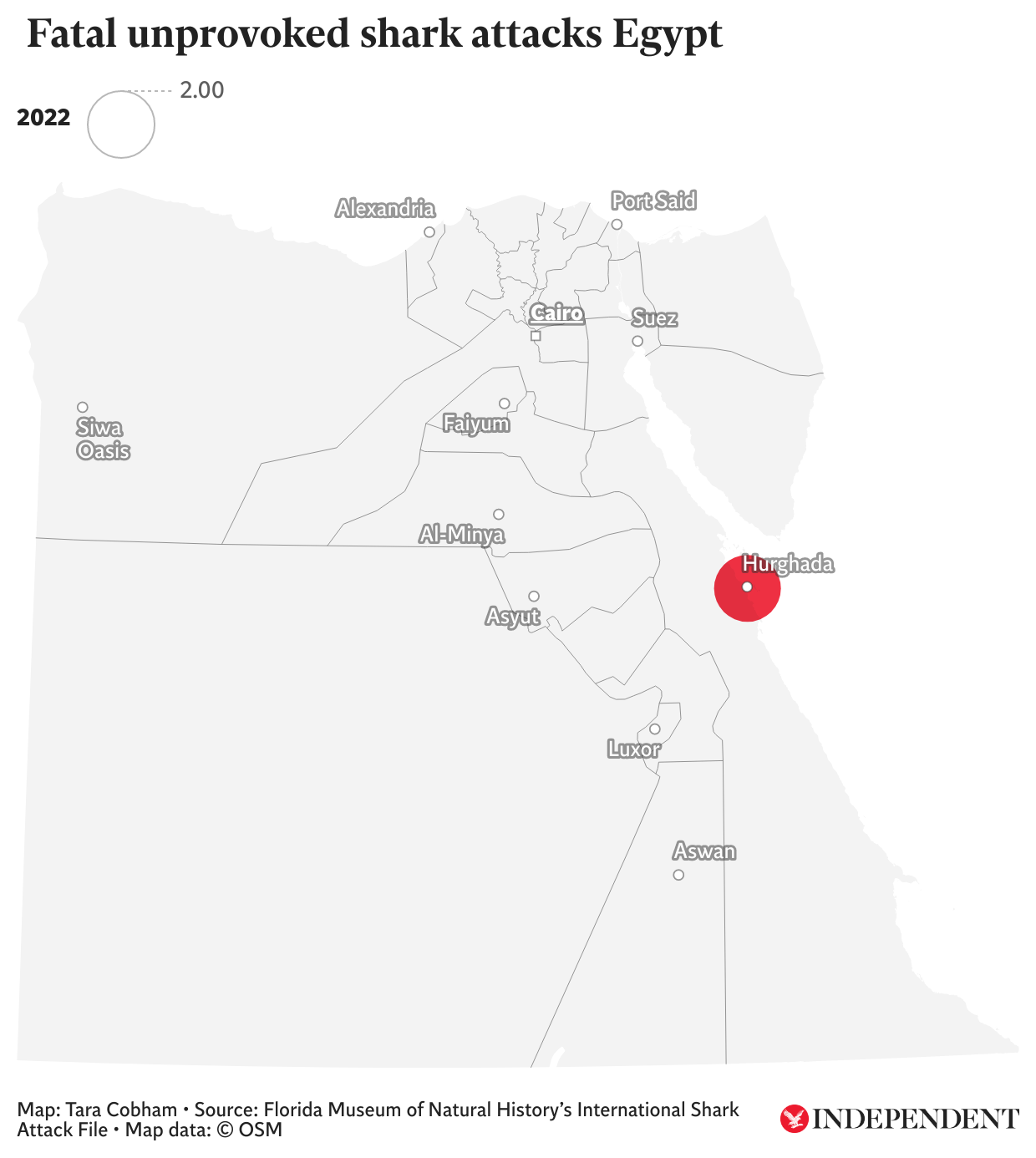
Egypt’s Red Sea resorts, including Hurghada and Sharm El-Sheikh, boast some of the country’s most renowned beach destinations and are popular with European tourists. Divers are attracted by the steep drop-offs of coral reefs just offshore, which offer a rich and colourful sea life.
Yet these tourist hotspots also seem to attract aggressive sharks. The two unprovoked fatal attacks that happened in Egypt in 2022 both took place in Hurghada, when an Austrian and a Romanian tourist were killed within days of each other.

In July last year, 68-year-old Austrian Elisabeth Sauer, a former councillor, was snorkelling when she was believed to have been attacked by a Mako or Oceanic whitetip shark in front of horrified onlookers, telling her husband “I’ll go back in for a moment” just before she was mauled.
The second woman, identified as a Romanian national aged in her 40s, is believed to have been similarly killed just 650ft away, with reports her terribly disfigured remains were found on a nearby reef the same day.

And, in previous years, a Czech tourist was killed by a shark off a Red Sea beach in 2018, while a German tourist was similarly killed in 2015.
A particularly frightening spate of attacks was the five that happened in five days in 2010, unusually close to the shore of Sharm el-Sheikh, killing one German and maiming four other foreign tourists.
Then there was the shark attack in 2020 when a young Ukrainian boy lost an arm and an Egyptian tour guide lost a leg.
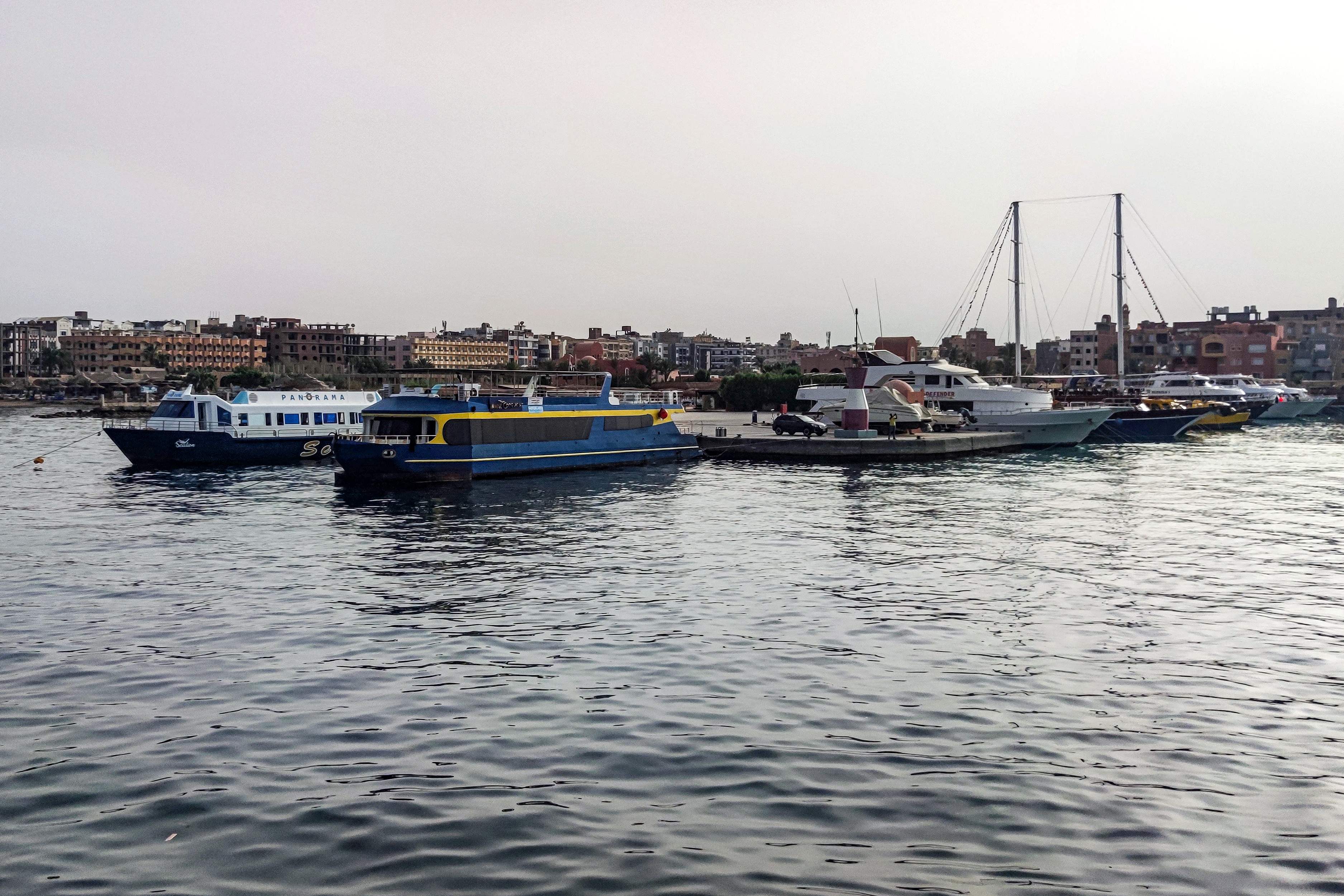
In the most recent shark attack on Thursday that killed the young Russian, authorities closed off a 74-kilometre (46-mile) stretch of the coastline, announcing it will remain off limits until Sunday.
The ministry later said it had caught the shark and was examining it in a laboratory to try to determine the reasons for the rare attack.
A gory video circulating online appears to show the Egyptian authorities capturing the shark in the water with nets and dragging it ashore for inspection, with crowds gathering around to watch as the predator bleeds from where someone has hooked its nose.
Egypt has in recent years sought to revive the vital tourism sector, which has been hurt by years of political instability, the coronavirus pandemic and the war in Ukraine.
The country’s tourism industry has also suffered from the fallout of a number of terrorist attacks. In 2005, bombings in Sharm el-Sheikh killed dozens in one of Egypt’s deadliest militant attacks. And in 2017, two German tourists were stabbed to death and at least four others injured at a hotel beach in the popular Red Sea resort of Hurghada in Egypt.
In a bid to restore confidence, Egyptian authorities built a 22-mile long concrete and wire wall around the tourist resort of Sharm El-Sheikh in 2021. Those entering the city by road are now required to pass through one of four gates equipped with cameras and scanners. Officials say the structure will protect tourism at the Red Sea resort on the southern tip of the Sinai peninsula.
After visits to Egypt decreased over the period between 2012 to 2019, according to Statista, the UK government reports an estimated half a million British nationals made a trip to the country last year, adding: “Most visits are trouble free.”



Join our commenting forum
Join thought-provoking conversations, follow other Independent readers and see their replies
Comments